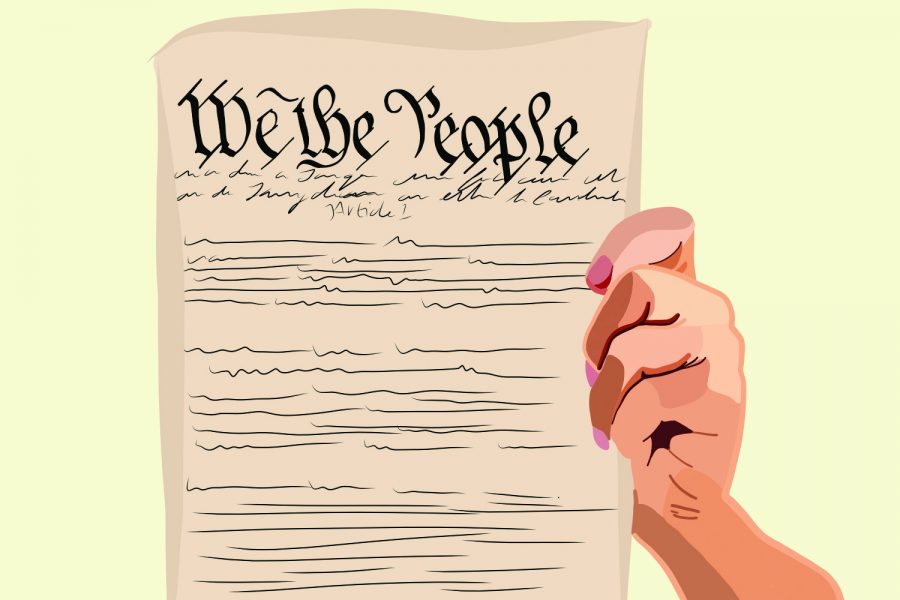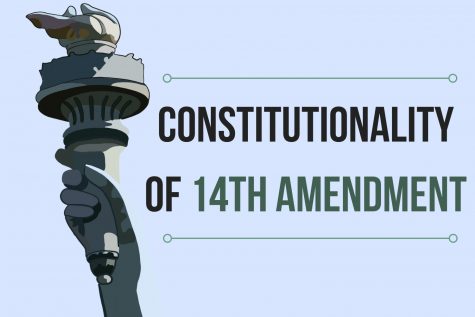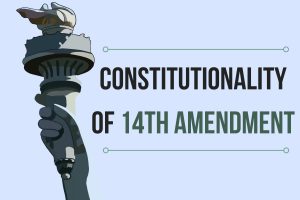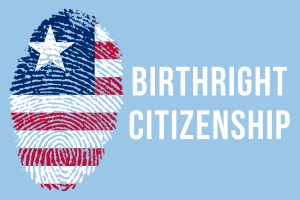Subject to interpretation
14th Amendment does not guarantee citizenship at birth
December 26, 2018
The 14th Amendment has been cited most recently as a response to President Trump’s claims that he can end “birthright citizenship” with an executive order. The 14th Amendment states: “All persons born or naturalized in the United States and subject to the jurisdiction thereof, are citizens of the United States.”
The leading argument that tends to resonate most among Trump’s critics is that the 14th Amendment essentially says that any person born in the United States is automatically granted citizenship. However, this would ignore the text and legislative history of the 14th Amendment, which goes to show just how questionable the applicability of this amendment is to children of illegal foreign nationals that are not under the United States’ jurisdiction.
In the infamous Slaughter-House cases of 1872, the Supreme Court ruled that the second segment of the 14th Amendment was intended to exclude “children of ministers, consuls and citizens or subjects of foreign States born within the United States.” In 1884, Elk vs. Wilkins confirmed the previous ruling when citizenship was denied to an American Indian because he “owed immediate allegiance to” his tribe and not the United States.
If the 14th Amendment truly applied to any person born in the U.S. regardless of whatever circumstances there may be, there would have been no need to pass such legislation.
— TJ Wall
Years later in 1924, the Indian Citizenship Act granted citizenship to Native Americans.
This birthright citizenship interpretation of the amendment would be correct if only the first segment existed, which states: “All persons born or naturalized in the United States … are citizens of the United States.” Instead, the second segment serves a vital role in directing the way in which this amendment should be interpreted. By adding “ … and subject to the jurisdiction thereof…”, the original author, Senator Jacob Howard, added a key detail that is overlooked by a vast majority of Americans.
According to Senator Howard, these words were intended to have the same meaning as the wording of the Civil Rights Act of 1866, which stated “all persons born in the United States and not subject to any foreign power…” are citizens of the United States. By including this one segment, the overall message of this amendment drastically changes.
Many people cite the 14th Amendment as the birthright citizenship amendment and believe that this protects the citizenship status of children who are born on U.S. soil to illegal immigrants. However, a child is only subject to the jurisdiction of the same government as his or her parents and if the child’s parents are illegally in the United States, this must mean that they are citizens elsewhere, thus they hold allegiance or are subject to some other country. Therefore, the child would not be considered a U.S. citizen according to the 14th Amendment.
After careful consideration of the information presented, one could only conclude that the 14th Amendment has been mistakenly interpreted and enforced for many years





















